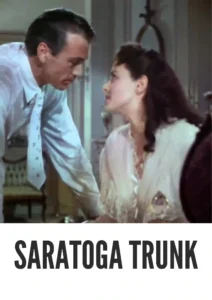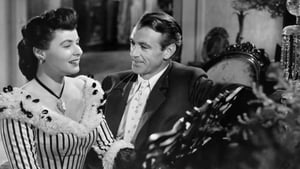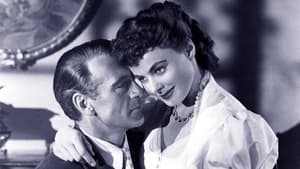Contact: info@alwanfilm.com
Video Sources 0 Views
- Watch trailer
- Saratoga Trunk 1945


Synopsis
Table of Contents
ToggleReview: Saratoga Trunk 1945 Colorized – A Classic Tale of Passion and Intrigue in Vibrant Technicolor

Introduction
“Saratoga Trunk” (1945) emerges as a cinematic gem, weaving a tapestry of passion and intrigue against the backdrop of 19th-century New Orleans. In this review, we’ll explore the significance of this early Technicolor film, delving into its impact on audiences and its enduring legacy in the realm of romantic drama.
Check The Full Colorized Movies List
Check Our Colorized Movies Trailer Channel
Understanding Saratoga Trunk 1945 Colorized: Director, Cast, and Genre
Directed by the esteemed Sam Wood, “Saratoga Trunk” (1945) showcases his mastery of storytelling and visual spectacle. The film boasts an ensemble cast led by Ingrid Bergman and Gary Cooper, whose on-screen chemistry ignites the screen with fiery intensity. Blending elements of romance, drama, and suspense, “Saratoga Trunk” (1945) transports viewers to a world of forbidden passion and dangerous liaisons.
Exploring the World of Saratoga Trunk 1945 Colorized: Plot and Characters
At its core, “Saratoga Trunk” (1945) follows the journey of a determined woman, played by Ingrid Bergman, who returns to New Orleans seeking vengeance against those who wronged her family. Along the way, she encounters a dashing gambler, portrayed by Gary Cooper, whose charm and charisma threaten to derail her plans. As their paths intertwine and passions flare, they find themselves caught in a web of deceit and desire that could spell their undoing.
The Art of Technicolor Filmmaking
Technicolor filmmaking revolutionized the way movies were made, allowing filmmakers to capture the vibrant hues of the world in stunning detail. By employing a complex process of color separation and dye transfer, Technicolor brought a new level of realism and depth to the silver screen, immersing audiences in worlds of unparalleled beauty and spectacle. In “Saratoga Trunk” (1945), Technicolor lends an air of opulence and grandeur to the lush landscapes of 19th-century New Orleans, elevating the film to a visual masterpiece.
Early Technicolor Films: A Brief History
The history of Technicolor filmmaking traces its roots back to the early 20th century, with the invention of the two-color and three-color processes that would revolutionize the industry. From the vibrant musicals of the 1930s to the sweeping epics of the 1940s, Technicolor films captivated audiences with their dazzling imagery and breathtaking beauty. “Saratoga Trunk” (1945) stands as a shining example of the artistry and innovation that defined the golden age of Technicolor filmmaking.
Saratoga Trunk 1945 and Its Technicolor Splendor
The decision to film “Saratoga Trunk” (1945) in Technicolor was a bold and inspired choice, allowing director Sam Wood to fully realize his vision of 19th-century New Orleans in all its splendor. From the bustling streets of the French Quarter to the opulent mansions of the Garden District, Technicolor brings the world of “Saratoga Trunk” (1945) to life with breathtaking beauty and vivid detail. The result is a sumptuous visual feast that transports viewers to another time and place, immersing them in a world of passion, intrigue, and romance.
The Debate Over Technicolor Filmmaking
While Technicolor filmmaking was hailed as a groundbreaking achievement in its time, it also sparked debate among purists who questioned its impact on the artistic integrity of cinema. Some argued that Technicolor’s vibrant hues detracted from the emotional depth of the story, while others praised its ability to enhance the visual experience and transport audiences to fantastical realms. As the debate raged on, filmmakers and audiences alike were left to ponder the merits and drawbacks of Technicolor filmmaking in the ever-evolving landscape of cinema.
Examining Saratoga Trunk 1945 as an Early Technicolor Film
As with any Technicolor classic, the impact of colorization on “Saratoga Trunk” (1945) is a matter of personal interpretation. Some may argue that it enhances the film’s visual appeal and immerses viewers in its world, while others may feel that it detracts from the stark beauty of the original black and white version. Regardless of one’s stance on the issue, there’s no denying the enduring power of “Saratoga Trunk” (1945) as a timeless romantic drama that continues to captivate audiences with its lush visuals and captivating performances.
Influence and Legacy: Saratoga Trunk 1945 Colorized’s Impact on Cinema
“Saratoga Trunk” (1945) has left an indelible mark on the world of cinema, inspiring countless filmmakers and captivating audiences with its timeless tale of love and revenge. From its unforgettable performances to its sumptuous visuals, the film continues to resonate with viewers of all ages, reaffirming its status as a beloved classic of the romantic drama genre.
Director’s Cinematic Legacy: Beyond Saratoga Trunk 1945 Colorized
Sam Wood’s influence extends far beyond “Saratoga Trunk” (1945), with a diverse body of work that continues to captivate audiences around the globe. From “A Night at the Opera” to “Goodbye, Mr. Chips,” Wood’s films are celebrated for their wit, charm, and humanity, solidifying his legacy as one of the preeminent directors of Hollywood’s Golden Age. Through his groundbreaking work, Wood has left an indelible imprint on the world of cinema, inspiring generations of filmmakers to follow in his footsteps.
Themes Explored in Saratoga Trunk 1945 Colorized
“Saratoga Trunk” (1945) explores a myriad of themes, from the destructive power of revenge to the redemptive nature of love. Through its richly drawn characters and compelling storyline, the film invites viewers to ponder the complexities of human nature and the eternal struggle between darkness and light. As audiences immerse themselves in the world of “Saratoga Trunk” (1945), they are reminded of the universal truths that bind us together and the enduring power of love to conquer even the greatest of obstacles.
Reception and Controversy Surrounding Saratoga Trunk 1945 Colorized
Upon its release, “Saratoga Trunk” (1945) received widespread critical acclaim, with many praising its lush visuals, captivating performances, and compelling storyline. However, the decision to film the movie in Technicolor sparked debate among purists, reigniting the age-old discussion surrounding the artistic integrity of colorized films. Despite the controversy, “Saratoga Trunk” (1945) remains a beloved classic that continues to captivate audiences with its timeless tale of love, revenge, and redemption.
Where to Watch Saratoga Trunk 1945 Colorized Online
For those eager to experience the timeless magic of “Saratoga Trunk” (1945), the film is readily available on popular streaming platforms such as Netflix, Amazon Prime, and Hulu. Whether you choose to watch it in its original Technicolor format or the early black and white version, “Saratoga Trunk” (1945) promises to transport you to a world of passion and intrigue, where love knows no bounds and the human spirit shines brightest in the darkest of times.
FAQs About Saratoga Trunk 1945 Colorized
Q: Is “Saratoga Trunk” (1945) based on a true story? A: No, “Saratoga Trunk” (1945) is a fictional tale crafted by the esteemed writer Edna Ferber, who drew inspiration from her own experiences and observations of life in 19th-century New Orleans.
Q: Who are the main actors in “Saratoga Trunk” (1945)? A: “Saratoga Trunk” (1945) features an ensemble cast led by the talented Ingrid Bergman and Gary Cooper, whose on-screen chemistry ignites the screen with passion and intrigue.
Q: What awards did “Saratoga Trunk” (1945) win? A: While “Saratoga Trunk” (1945) did not win any major awards, it received critical acclaim for its lush visuals, captivating performances, and compelling storyline.
Q: Why was “Saratoga Trunk” (1945) filmed in Technicolor? A: The decision to film “Saratoga Trunk” (1945) in Technicolor was made to enhance the visual appeal of the film and transport audiences to the lush landscapes of 19th-century New Orleans. While some purists may argue that colorization compromises the film’s artistic integrity, others praise its ability to bring the world of “Saratoga Trunk” (1945) to life with breathtaking beauty and vivid detail.
Conclusion
As we reflect on the enduring legacy of “Saratoga Trunk” (1945), let us celebrate its status as a timeless classic that continues to captivate audiences with its lush visuals, captivating performances, and compelling storyline. Whether viewed in its original Technicolor format or the early black and white version, “Saratoga Trunk” (1945) promises to transport you to a world of passion and intrigue, where love knows no bounds and the human spirit shines brightest in the darkest of times.













